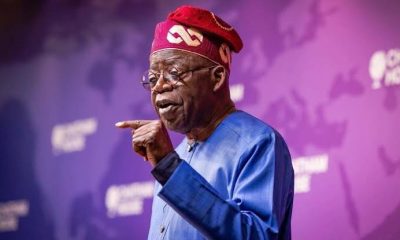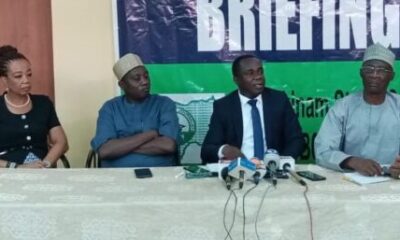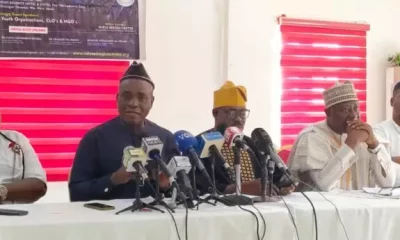News
Stakeholders call for judicious use of fuel subsidy funds
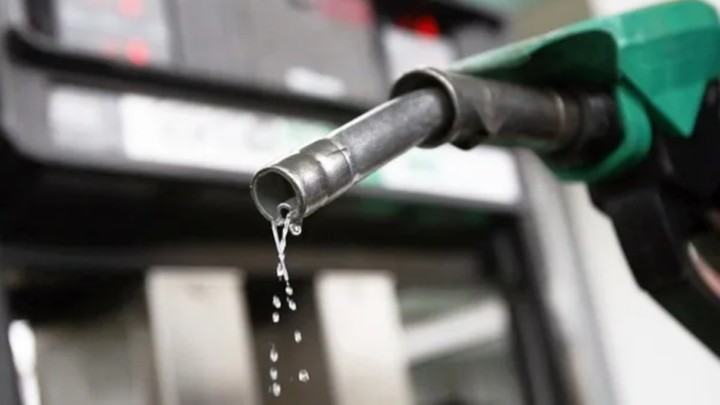
Some stakeholders have called on the Federal Government to channel subsidy funds into agriculture, health and education to address the impact of fuel subsidy removal.
The Stakeholders which include 19 Civil Society Organisations, traditional leaders, women groups and Unions, among others, made the call during a two-day northern regional town-hall meeting organised by Partnership for Amplified Voices (PAV) in Kano.
The stakeholders also called for increase minimum wage and subsidized production.
The Executive Director Connected Development (CODE), Mr Hamzat Lawal, said that the meeting was to come together to proffer lasting solutions on fuel subsidy removal which has affected people at the grassroots level.
Lawal described citizens engagement as a major catalyst to help improve their engagements in the northern region, states and Communities and be more effective at promoting transparency and accountability.
On his part, the National Coordinator, NG Cares, Dr Abdulkarim Obaje, in his presentation, tagged “understanding the NG Cares initiative of Federal Government, Financed by world bank”, called for enforcement of funds release policy to ensure timely release of palliatives.
“The fund should not stay more that 10 working days in the account of the state government and immediately be disbursed to the beneficiaries,” Obaje said.
He advised CSOs to work closely with government and citizens, to effectively monitor the subsidy savings and spendings to promote transparency and accountability at sub national level.
Dr Eze Onyekpere, also speaking on “fuel subsidy Savings and other FG policies: How can citizens optimally benefit?” noted that an Infrastructure support fund has been set up by proclamation to alleviate suffering due to fuel subsidy removal.
Speaking earlier, the Falakin Bichi, Alhaji Abba Wada-Waziri, emphasized the need for more efforts, by CSOs to ensure that palliatives are distributed at the grasssroots level.
Others who spoke during the town-hall meeting, include: Hajiya Mairo Bello from AGIP, Safiyan Lawan-Bichi, from Kano budget working group and Fatima Musa-Aliyu, Bridge connect Africa, among others.
The town-hall meeting, with the theme “How Best Citizens Can Benefit From Government Policies on Electricity Pallaitives and Fuel Subsidy Savings”, was organized by Partnership for Amplified Voice (PAV) with support from World Bank.
The PAV is an accountability Civil Society platform facilitated by partnership of two leading CSOs in Nigeria, BudgIT Foundation (BudgIT) and Connected Development (CODE).
Headline
Prince Harry visits sick Nigerian soldiers in Kaduna

Prince Harry and his team visited the 44 Nigerian Army Reference Hospital in Kaduna to interact with wounded soldiers who are receiving treatment.
The Duke of Sussex is in Nigeria with his wife to champion the Invictus Games, which Harry founded to aid the rehabilitation of wounded and sick servicemembers and veterans.
Nigeria joined the Invictus Community of Nations in 2022 becoming the first African country to join.
Prince Harry’s visit to Kaduna came 68 years after his late grandmother Queen Elizabeth II visited the state during the time of the late Premier of Northern Region Sir Ahmadu Bello.




News
Senate approves death penalty for drug traffickers
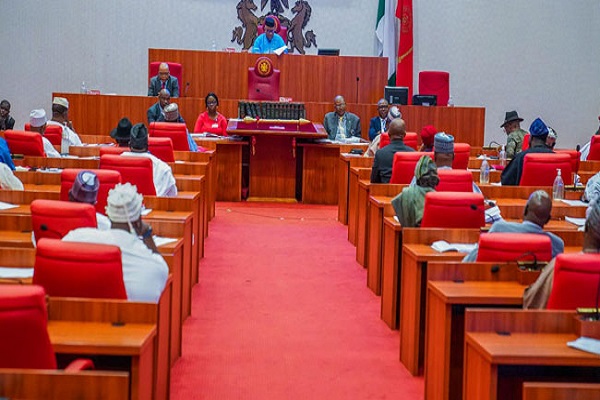
Senate on Thursday, May 9, approved the death penalty for those convicted on the charge of drug trafficking in the country.
The punishment prescribed in the extant NDLEA Act is a maximum sentence of life imprisonment.
The resolution of the Senate followed its consideration of a report of the Committees on Judiciary, Human Rights and Legal Matters and Drugs and Narcotics, National Drug Law Enforcement Agency (NDLEA) Act (Amendment) Bill, 2024.
The Chairman of the Committee on Judiciary, Human Rights & Legal Matters presented the report during plenary, Senator Mohammed Monguno (APC-Borno North).
The bill, which passed its third reading, aims to update the list of dangerous drugs, strengthen the operations of the NDLEA, review penalties, and empower the establishment of laboratories.
Section 11 of the current act prescribes that “any person who, without lawful authority; imports, manufactures, produces, processes, plants or grows the drugs popularly known as cocaine, LSD, heroin or any other similar drugs shall be guilty of an offence and liable on conviction to be sentenced to imprisonment for life” was amended to reflect a stiffer penalty of death.
Although the report did not recommend a death penalty for the offence, during consideration, Senator Ali Ndume moved that the life sentence should be upgraded to the death penalty.
During a clause-by-clause consideration of the Bill, Deputy Senate President Barau Jibrin, who presided over the session, put the amendment on the death penalty to a voice vote and ruled that the “ayes” had it.
But Senator Adams Oshiomhole objected to the ruling, saying that the “nays” had it.
He argued that matters of life and death should not be treated hurriedly, but Barau said it was too late, as he failed to call for division immediately after his ruling.
The bill was subsequently read for the third time and passed by the Senate.
-

 Headline6 days ago
Headline6 days agoSuspend cybersecurity levy– Reps to CBN
-

 Business6 days ago
Business6 days agoNigeria needs over $2bn to revive Ajaokuta Steel Plant, says Minister
-

 Headline3 days ago
Headline3 days agoPrince Harry visits sick Nigerian soldiers in Kaduna
-

 Entertainment3 days ago
Entertainment3 days agoAMVCA Cultural Day: BBNaija’s Neo, Venita win Best Dressed Male, Female
-

 Headline6 days ago
Headline6 days agoTinubu resumes work after foreign trip
-

 News5 days ago
News5 days agoShan George’s money returned to Zenith Bank account
-

 Metro3 days ago
Metro3 days agoEx-Sports Minister laments after hospital neglected him for hours over N80000 deposit

